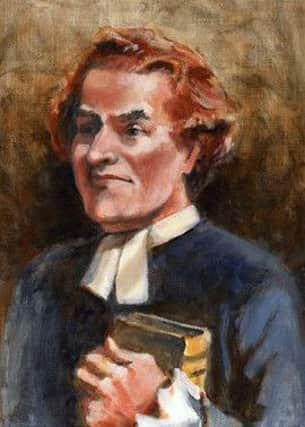The amazing story of Francis Makemie, a Ramelton man, and the founder of American dissent


His boyhood belonged to the years of turbulent political struggle between Presbyterian leaders and Anglican bishops.
The bishops’ victory resulted in the Scots-Irish exodus to America at the beginning of the 18th century. Makemie’s missionary zeal and lifelong battle for religious freedom can be understood in the light of this earlier history.
Advertisement
Hide AdAdvertisement
Hide AdBarred from the Irish University because he was Presbyterian, Makemie took a degree from the University of Glasgow. He was ordained in 1682 by the Presbytery of Laggan. At the call for a minister/missionary by Col. William Stevens from Rehoboth, Maryland Makemie came to the American colonies and travelled in North Carolina, Maryland, Virigina, and New England. This was more than a generation before the great migration of Scots-Irish to America.
Because New England, particularly Massachusetts, was inhospitable territory for Presbyterians, he preached in Maryland, North Carolina, and Virginia, combining his missionary work with business, as there was no provision for financial support for a missionary at that time.
At some time before 1698 he had become the settled pastor at Rehoboth, one of various churches he had organised; nevertheless, he continued missionary work in Delaware and Virginia.
In 1683 Makemie established four Presbyterian congregations, located in Rehobeth, Snow Hill, Princess Anne (Manokin Church) and Salisbury (Wicomico), Maryland. Since Makemie was under the Presbytery of Laggan’s direction, these churches often are claimed to be the first Presbyterian churches in America.
Advertisement
Hide AdAdvertisement
Hide AdIn 1687 Makemie purchased land in Accomack County, Virginia. He engaged in shipping and trade to make a living, while travelling to the small congregations of Presbyterians. William Anderson, a successful businessman and landowner, helped Makemie become established.
Francis married Anderson’s daughter, Naomi, around 1685. They had two daughters, Anne (circa 1697) and Elizabeth (circa 1700). Elizabeth died before her father, while Anne outlived him and was married three times.
On October 5, 1699, Makemie appeared at the Accomac County court to request a license to preach and hold religious meetings in Virginia as a Presbyterian at his houses in Pocomoke and Onancock.
Previously, he had preached and organised churches in Maryland and Delaware, as well as holding services in Virginia.
Advertisement
Hide AdAdvertisement
Hide AdThe official church in Virginia was the (Episcopal) Church of England. Passage of the Act of Toleration by the English Parliament in 1689 gave new rights to religious dissenters, allowing them to register their meeting houses and license their ministers to preach.
In 1699, Makemie got the Virginia legislature to accord similar freedom in the Commonwealth. The court gave him a license on October 15, 1699.
In 1706, Makemie helped bring together Presbyterians ministers and elders to establish the Presbytery of Philadelphia. This was the official birth of American Presbyterianism. Makemie was elected the first moderator of the Presbytery.
While travelling in January 1707, Makemie was arrested by Lord Cornbury (aka Edward Hyde), the Colonial Governor of New York, for preaching without a license.
Advertisement
Hide AdAdvertisement
Hide AdThough Anglicanism was the official religion, there were many dissenters who preached different doctrines, including Puritans, Quakers, and Presbyterians on Long Island. Makemie had a license to preach as a dissenter in Virginia, Maryland and Barbadoes.
After spending six weeks in jail, Makemie was acquitted in June 1707. His defence was based on the English Toleration Act of 1689. Though he was found innocent, he was ordered to pay the very expensive cost of his prosecution. This case is considered a landmark case in fervour of religious freedom in America. The long-range result was a victory for freedom of worship not limited to New York. Makemie died in the summer of 1708.